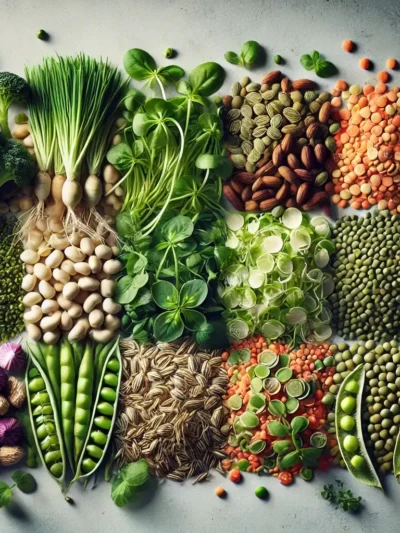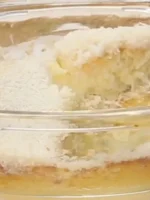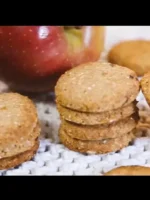Taming Hypertension with the Power of Food:
Arterial hypertension, also known as high blood pressure, is a silent enemy that haunts millions of people around the world.
Characterized by increased force with which blood pulsates against artery walls, this chronic condition stands as a relentless risk factor for a range of serious complications, such as heart disease, stroke, kidney failure and other health threats.
While medication is often prescribed to combat this battle, dietary changes can be just as effective and offer additional long-term health benefits.
Adopting a healthy, balanced diet becomes a powerful tool for reducing blood pressure naturally, drastically reducing the risk of developing these devastating complications.
Essential Nutrients: Allies in the War Against High Blood Pressure
To achieve victory over hypertension, it is crucial that we incorporate foods rich in nutrients that act as allies in the fight against high blood pressure. DASH diet in the treatment of systemic arterial hypertension. PDF
Let's reveal the properties and main food sources of these powerful fighters:
Potassium: The Antagonist of Sodium:
- Function: Potassium acts as an antagonist to sodium, combating its harmful effects on the body. Its action consists of eliminating excess sodium from the body and relaxing blood vessels, promoting a drop in blood pressure.
- Food Sources: To stock up on this hero, include in your menu: bananas, oranges, potatoes, sweet potatoes, beans, avocados, spinach and dark green leaves.
Fiber: The Promoter of Satiety and Weight Control:
- Function: Fiber stands out as a powerful ally in the battle against hypertension. Its action focuses on reducing LDL cholesterol (the “bad” cholesterol), promoting satiety and helping to control body weight, factors that contribute significantly to hypertension.
- Food Sources: To strengthen yourself with this warrior, add to your diet: whole grains, fruits, vegetables, nuts, seeds and oats.
Omega-3 and Unsaturated Fatty Acids: The Cardiovascular Protectors:
- Function: These fatty acids boast anti-inflammatory properties and contribute to improving cardiovascular health, protecting the heart against the dangers of hypertension.
- Food Sources: Fuel up on these defenders by eating: fatty fish (salmon, sardine, tuna), nuts, seeds and olive oil.
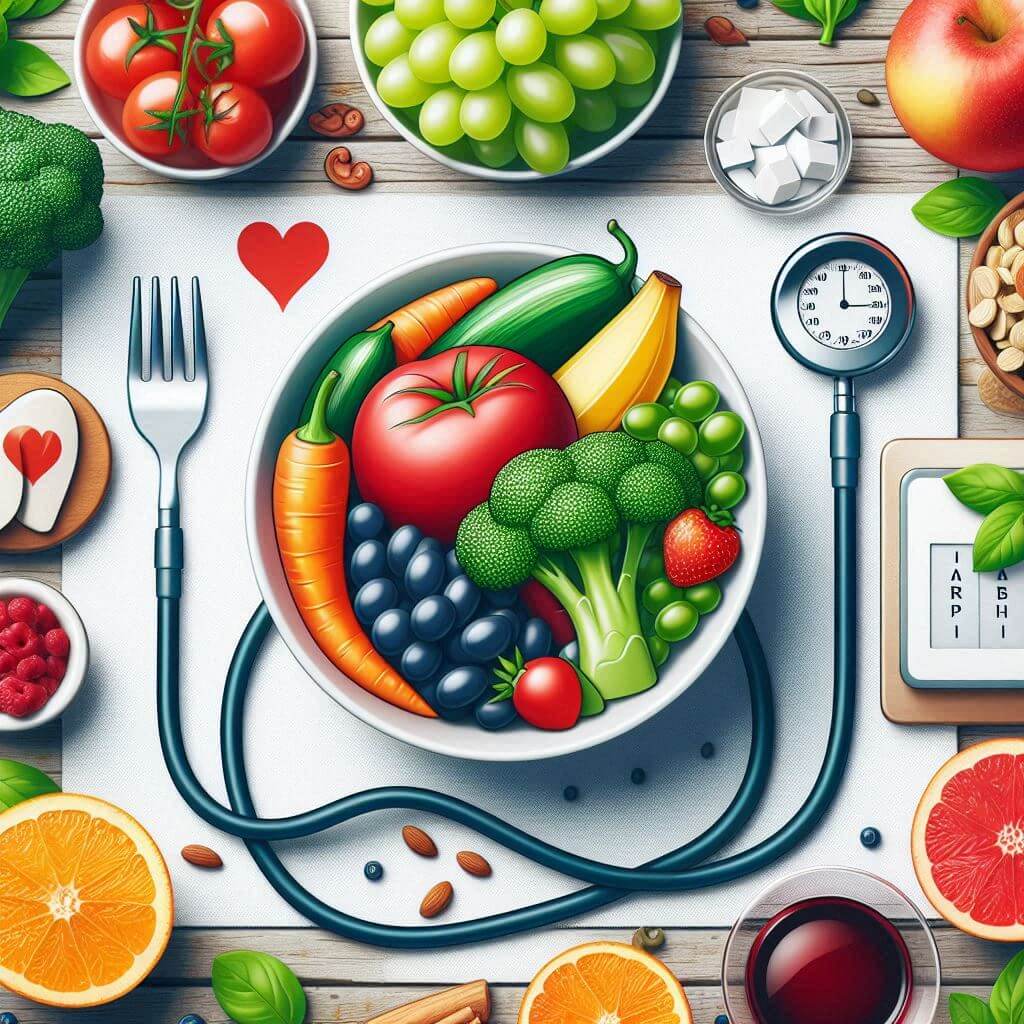
Dietary Modifications: An Essential Strategy for Combating Hypertension
In addition to including the nutrients mentioned in your diet, other dietary changes are crucial weapons in the fight against hypertension:
Sodium Reduction: Limit the Silent Enemy:
- War on processed foods: Eliminate processed foods, fast food, ready-made seasonings, industrial sauces, red meat and sausages from your diet, as these villains contain large amounts of sodium.
- Herbs and Spices: Replacing the Enemy: Replace salt with fresh herbs and spices, seasoning your dishes with flavor and health.
- Moderate salt consumption: Use salt in moderation, opting for fresh, minimally processed foods.
Moderate Alcohol and Caffeine Consumption: Balancing the Attack:
- Alcohol: A Potential Adversary: Excessive alcohol consumption can raise blood pressure. Limit your consumption according to health guidelines.
- Caffeine: A Transient Effect: Caffeine may have a temporary effect on blood pressure. People who are sensitive to caffeine should limit their intake of coffee, tea, and other caffeinated beverages.
Additional Tips for Triumph in Battle:
- Nutritionist: An Essential Ally: Consult a nutritionist to create a personalized eating plan, considering your individual needs and preferences.
- Reading the Labels: Unmasking the Enemies: Read food labels carefully, paying attention to sodium content, fats saturated fats and sugar before purchasing.
- Meal Planning: Organization is Key: Plan your meals in advance to avoid making impulsive, unhealthy choices. Prepare healthy snacks to take with you.
- Hydration: The Basis of Life: Stay well hydrated by drinking water regularly. Water helps regulate blood pressure and eliminate toxins from the body.
- Home Cooking: Master Your Health: Prioritize cooking at home, using fresh ingredients and controlling the sodium and fat content of your preparations. See recipes to help you
- Practice Physical Activity: Move for Health: Regular physical activity is a powerful ally in controlling blood pressure. Consult a doctor for guidance on the appropriate type and intensity of exercise. exercises.
- Stress Management: Mental Balance: Stress can raise your blood pressure. Find relaxation techniques, such as meditation, yoga, or deep breathing, to help manage stress.
- Regular Monitoring: Essential Monitoring: Have your blood pressure checked regularly and share the results with your doctor. This will allow for appropriate adjustment of your treatment.
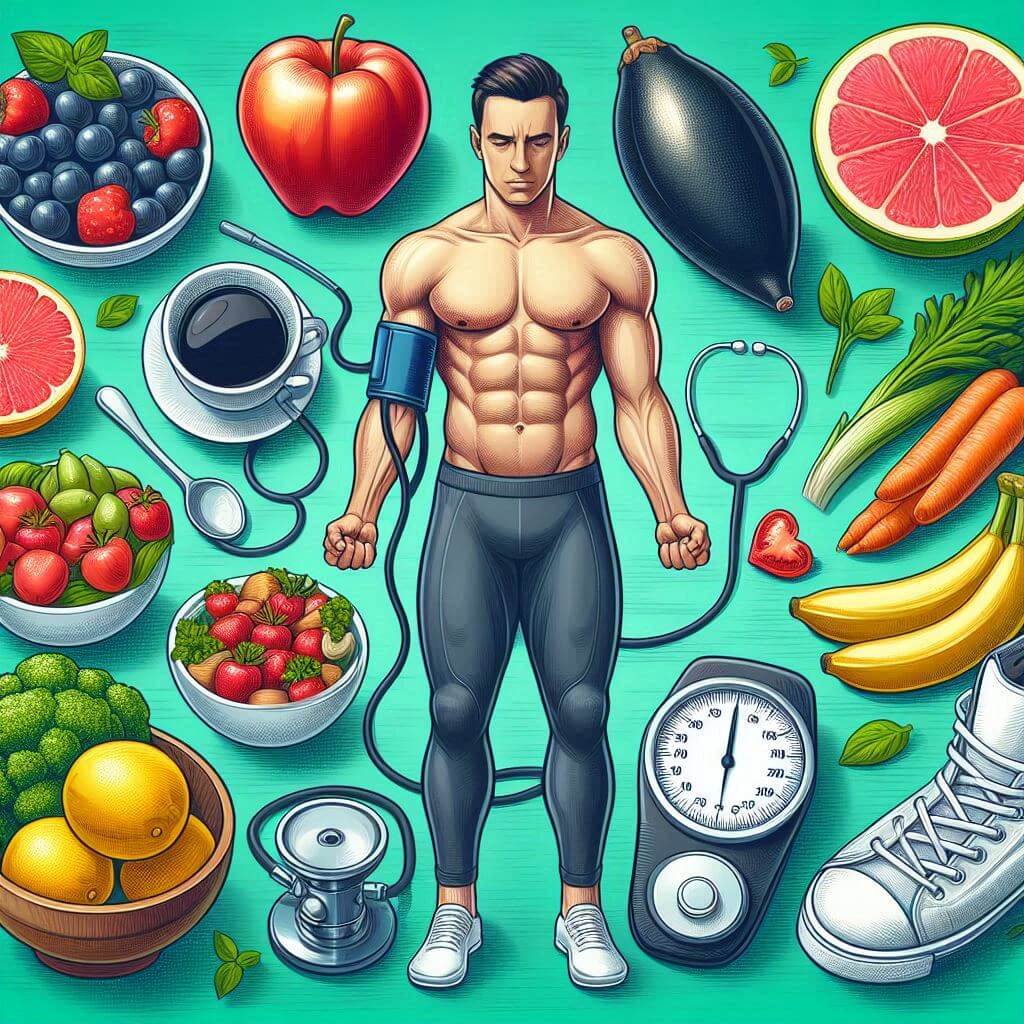
Challenges and Solutions for a Healthier Life
Although the nutritional reeducation is a powerful weapon in the fight against hypertension, recognizing and overcoming challenges is essential to achieving lasting results.
Common Challenges:
- Adherence to Dietary Recommendations: Keep a food Healthy eating can be challenging due to busy schedules, lack of time to cook and food temptations.
- Availability and Access to Healthy Foods: It’s not always easy to find healthy, affordable food options, especially in places with limited fresh food supplies.
- Cultural and Social Influences: Ingrained eating habits and social pressures can make it difficult to adopt a healthy diet.
- Lack of Nutritional Knowledge: Lack of information about nutrition can lead to poor food choices.
Practical Solutions:
- Education and Support: Look for reliable information about healthy eating and seek support from health professionals, such as nutritionists and doctors.
- Planning and Organization: Organize your shopping and meals in advance, making it easier to choose healthy options.
- Cultural Adaptation: Find healthy alternatives to traditional dishes by combining familiar flavors and textures with more nutritious ingredients.
- Experimental Kitchen: Explore new ingredients and recipes, making healthy eating more interesting and enjoyable.
High blood pressure is a serious condition, but with lifestyle changes, including a healthy diet, it can be controlled and complications prevented.
Dietary approach to hypertension control: reflections on adherence and possible impacts on public health
Remember that every small step towards a more balanced diet is a victory in the battle against high blood pressure.

Always consult a healthcare professional for personalized guidance.
| Question | Response |
|---|---|
| What is high blood pressure? | Arterial hypertension, or high blood pressure, is a chronic condition where the blood pressure in the arteries is constantly high, which can lead to serious health problems, such as heart disease and stroke. |
| What are the main risk factors for hypertension? | Risk factors include excessive sodium intake, obesity, lack of physical activity, high alcohol consumption, stress, and a nutrient-poor diet. |
| How can diet help control hypertension? | A diet rich in potassium, fiber, and fatty acids omega-3, and low in sodium and processed foods can help lower blood pressure. Foods like bananas, whole grains, and fatty fish are especially beneficial. |
| What foods should be avoided to control high blood pressure? | Avoid processed foods, fast food, ready-made seasonings, red meat and sausages, as they are high in sodium. Also limit your consumption of alcohol and caffeine. |
| What is potassium and how important is it in a diet for hypertension? | Potassium helps balance sodium levels in the body and relaxes blood vessels, helping to lower blood pressure. Foods rich in potassium include bananas, potatoes, and spinach. |
| How can fiber help control blood pressure? | Fiber helps lower LDL cholesterol, promotes satiety, and controls body weight, which can lower blood pressure. Find fiber in whole grains, fruits, and vegetables. |
| How important are omega-3 fatty acids for cardiovascular health? | Omega-3 has anti-inflammatory properties and improves cardiovascular health, protecting the heart and helping to control blood pressure. Sources include fatty fish and nuts. |
| What is the impact of sodium consumption on blood pressure? | Excess sodium can cause fluid retention and increase blood pressure, so it is important to limit your intake of foods high in sodium. |
| What are some tips for planning healthy meals for high blood pressure? | Plan meals in advance, read food labels for sodium content, and cook at home using fresh, minimally processed ingredients. |
| How does stress affect blood pressure? | Stress can raise blood pressure, so it's important to find ways to manage stress, such as relaxation techniques and physical exercises. |
| Why is it important to consult a nutritionist to control hypertension? | A nutritionist can provide a personalized meal plan and help implement sustainable dietary changes tailored to individual needs and preferences. |
| How important is it to regularly monitor blood pressure? | Regular monitoring helps assess the effectiveness of dietary and lifestyle changes, allowing for necessary adjustments to keep blood pressure under control. |
This table can serve as a basis to help clarify common questions about hypertension and how diet can play a crucial role in its control.



